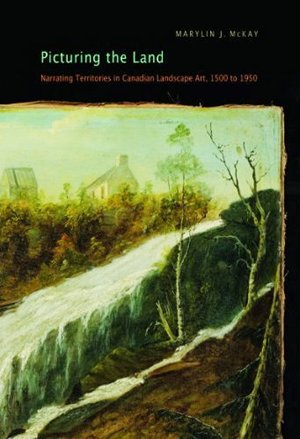Picturing the Land: Narrating Territories in Canadian Landscape Art, 1500–1950

Support Canada's History in other ways (more)
by Marylin J. McKay
McGill-Queen’s University Press, Montreal, 2011.
377 pp., illus., $59.95 paperback
An ambitious book, Picturing the Land surveys a broad swath of Canada’s art history through a socio–political lens, framing that art in the context of Canada’s colonial history.
The unique brilliance of this book is in its generosity of scope and in Marylin J. McKay’s thematic approach. In support of her argument, her research is extensive. Teasing out various motifs within Canadian art and history, McKay tracks themes in Canadian art and related illustrative activities back to 1500. Though occasionally the interpretation of images relies too heavily on this thematic method and can be a bit too academic in its approach, the framework nonetheless makes for a compelling narrative. McKay singles out artistic themes such as a “pastoral concept of territory” — a focus on the rural retreat and idealized farmland — and “the nomadic concept of territory,” which “naturally focuses on wilderness land and the active processes of conquest and pen¬etration.”
The book was produced in collaboration with the Beaverbrook Canadian Foundation, and the richness of its illustrations — from early geographic maps and set¬tlers’ illustrations to modern photos and paintings more readily recognized as art — makes it an impressive sourcebook.
— Mariianne Mays Wiebe (Read bio)
Mariianne Mays Wiebe is a poet and writer with an interest in creative processes across the disciplines.